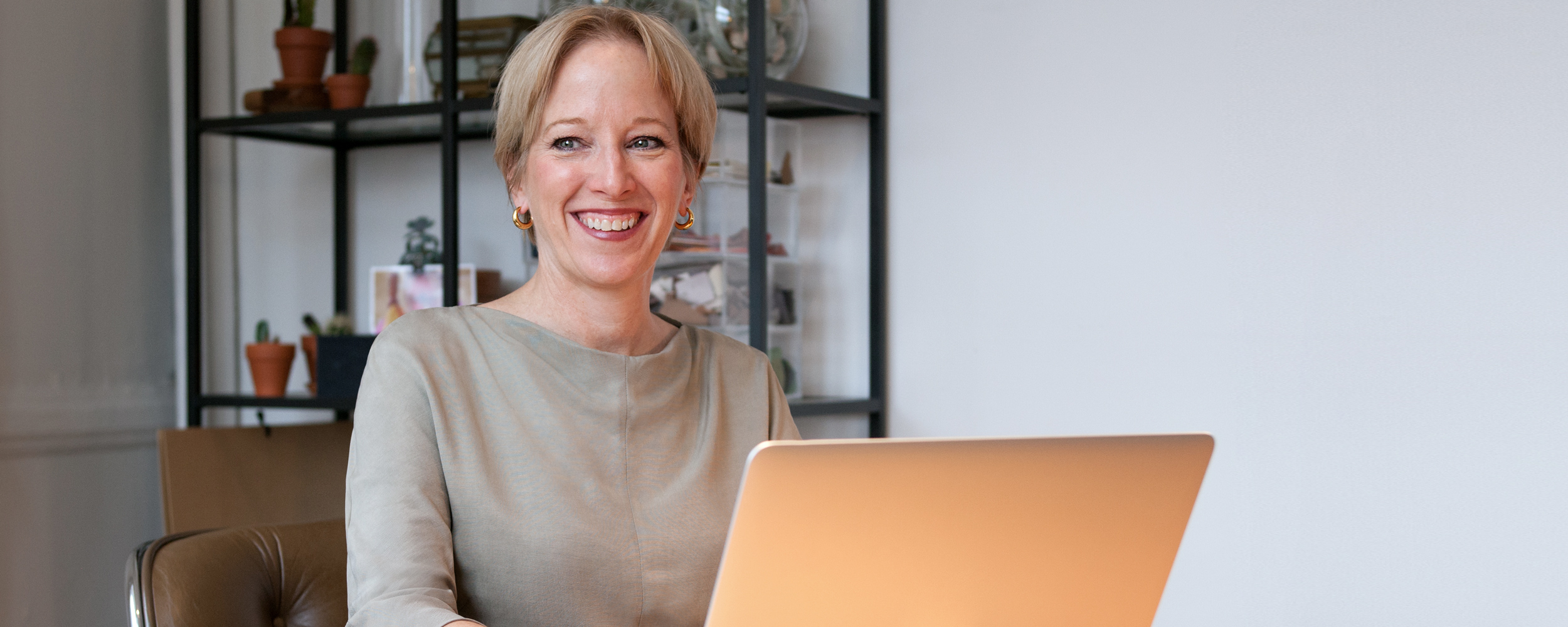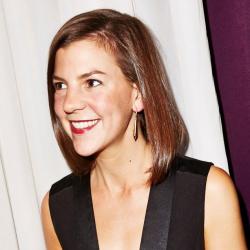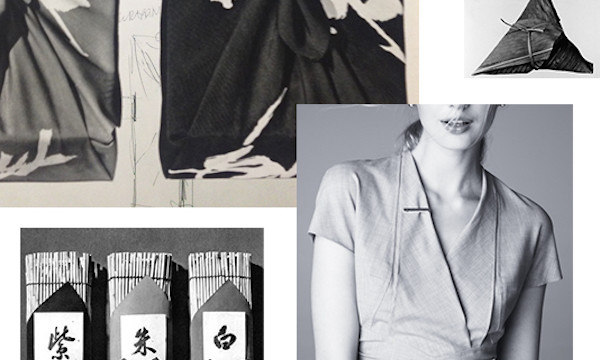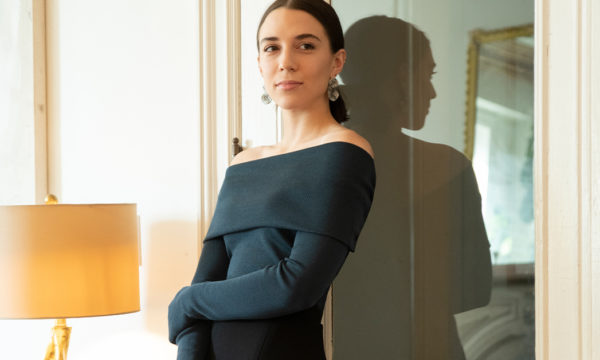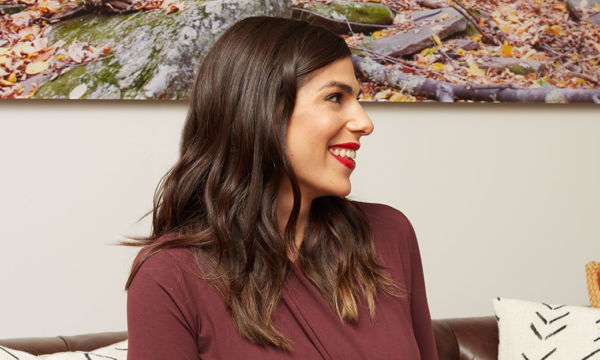Business, Interpreted: The Tricky Art of Translating Cultures
November 04, 2016 | Filed in: Woman of the Week
A true renaissance woman, Tracy Miller started her career translating English and Japanese for the Hard Rock Cafe in Tokyo. Two decades, two kids, and an MBA later, she started her own business to help companies adapt to new languages and cultures. (She’s also mom to MM’s associate art director, Kei, and the namesake of our elegant new Tracy dress.) A few weeks ago, she visited the MM headquarters to talk cross-cultural nuances, mandatory family meetings, and the hidden dangers of a thumbs-up sign.
AS AN INTERPRETER, I really learned to have an open mind, and to realize that I’ll learn a lot more from other people than they’ll ever learn from me. I’ve had to develop an attitude of humility when it comes to accepting different ways of doing things. You also have to be very attuned to people’s reactions and feedback, and it takes a high level of concentration over a long period of time. It’s tiring, but it really keeps me sharp.
MY SKILL, in addition to interpreting and translating, is to help the communications process. It’s my role to be a conduit, and sometimes it goes beyond words. Occasionally, you need to go to the American side and say, “Hey, it might be more effective if you try this other way.”
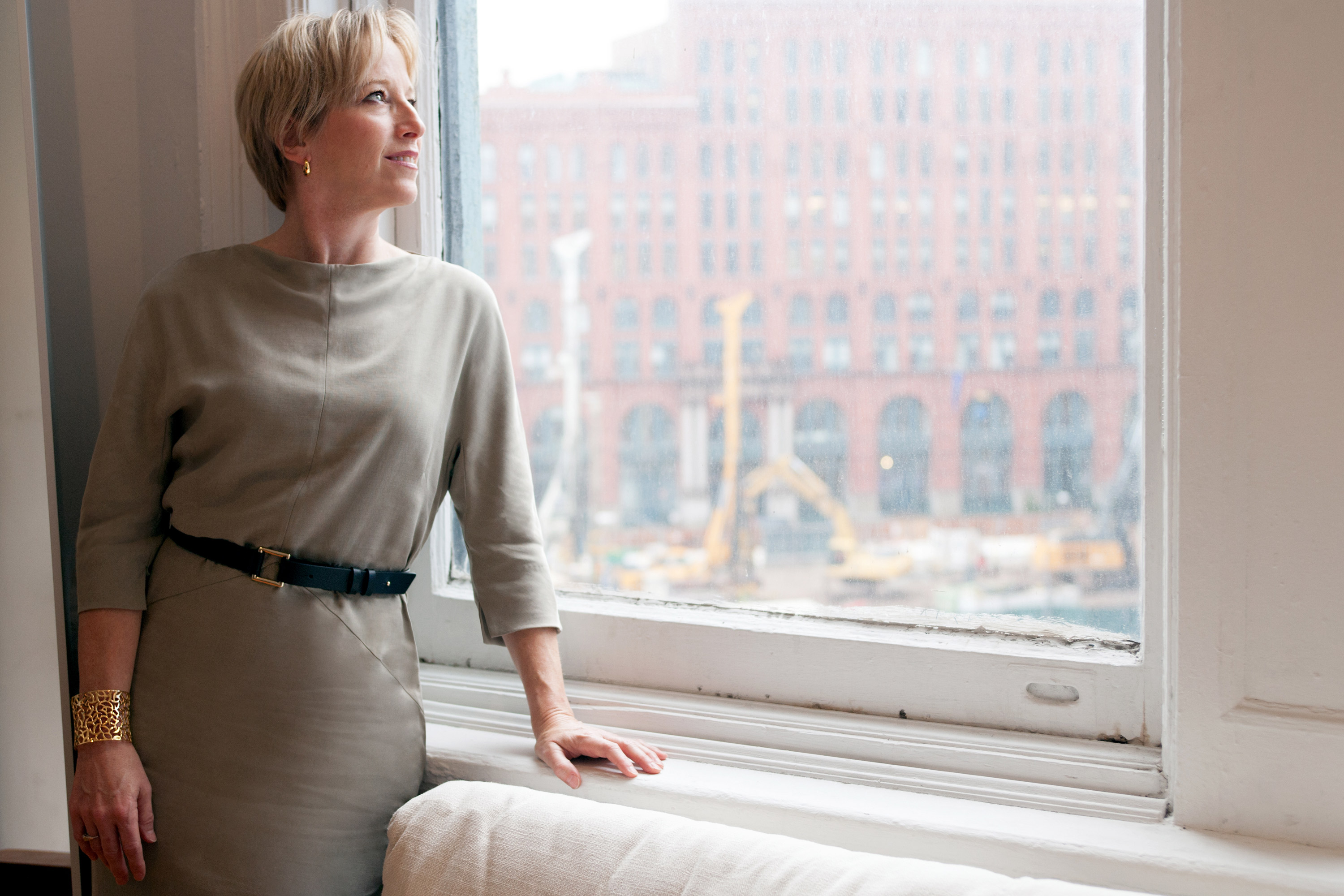
Tracy in her namesake dress.
I HAD A PRETTY TYPICAL midwestern upbringing in Flint, Michigan—back when the water there was fine—and got a scholarship to Michigan State University. I started out in engineering, but in those days, we had to register for classes using punch cards in this big gym with a million other students. I needed a five-credit class and I couldn’t get the one I wanted. Then I saw that there was no line for the Japanese class, so I said, “Screw it, I’ll study Japanese.” That was my sophomore year.
ONE THING LED TO ANOTHER. I met Kei’s dad, who was a Japanese exchange student at the time, and he set up a homestay for me in Japan. We married a couple of years later. I went to live in Tokyo and really learned Japanese, the hard way. I did public relations for the Hard Rock Cafe, and then I worked in the international investment department at a life insurance company. A lot of the work was translation from Japanese to English, which gave me a solid skill. It was that time in the mid-’90s when Japanese companies were buying a lot. The exchange rate was favorable to the yen, and it led to this big real estate bubble.
I HAD MY SON Kei in ‘91, and my daughter Emily in ‘94. Both were born in Japan. But things didn’t work out with their dad, and we came back to Michigan in ‘98. I finished raising them pretty much on my own.
I GOT AN MBA at the same time that I was working as a translator and still had my two children at home. I knew I needed to take things to the next level, so that’s what I did—sometimes you just have to bite the bullet. It was a crazy time! I implemented mandatory family meetings to stay organized, otherwise I was going to go crazy or kill someone. The family meetings weren’t very popular with the kids, but if you didn’t come, you didn’t get an allowance.
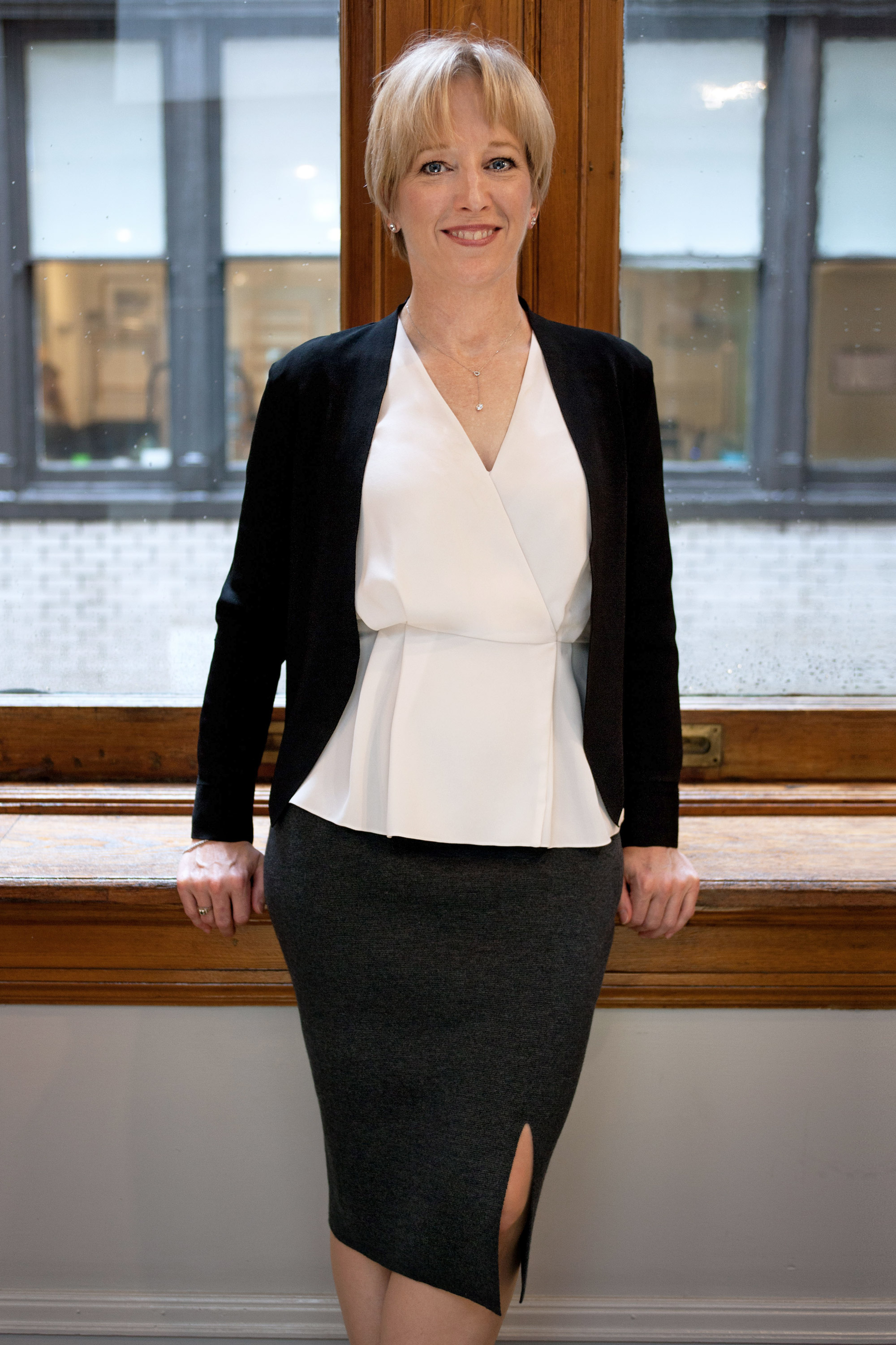
Tracy in the De Beauvoir blouse, the Sant Ambroeus jardigan, and the Delancey skirt.
MY CAREER recently took a new direction: I’ve started working in the project management side of globalization, helping companies with global aspirations handle translations successfully. I got into it when I was working as an interpreter for a company that was struggling to translate navigation software for a major auto manufacturer. They were trying to translate the GPS display screens into about 40 languages for vehicles around the world. I said, “Hey guys, I think I know a better way of doing this. Do you want me to help you out?” They gave me the job, and I found myself feet to the fire, learning project management in multiple languages instead of just Japanese and English. My job was to make sure that the text displayed on the vehicle screen was not only consistent with the language, but also appropriate to the local market.
I OWN MY OWN COMPANY NOW, and have a group of translators I work with. Part of our service is that we bring cultural background into the communication process to make it more effective. Sometimes people say, “Just translate this,” but you can’t translate something verbatim and have it achieve the same purpose.
CULTURAL DIFFERENCES are very nuanced. You can’t just take a product and throw it into a new market; you have to think about how people will respond to it. For example, on a website, you want photo assets and text that are tailored to the local market. You wouldn’t show a woman with a short-sleeved shirt in the Middle East. And in some cultures, you can’t do a thumbs-up or thumbs-down, like on Pandora or Facebook, because it’s an insult. Part of my job is just wording, and some of it is more touchy-feely stuff.
I ALWAYS ASK, “What can I add that will be of value?” Right now, I’m doing digital global marketing, which is all about SEO and social media in other cultures, and how to make use of Facebook or whatever’s popular in that country. That’s really interesting, because it’s new, and there’s lots of area for growth.
I FEEL A STRONG CONNECTION to Japan. l have lots of friends there, and my kids are half-Japanese. There aren’t many Japanese people where I live in Michigan, but I always somehow have my hands in it, whether it’s doing work or reading a book or watching a movie in Japanese—and I have to, in order to keep my language skills strong.
I USUALLY WEAR a suit when I’m working, especially in Japan, where people tend to be on the conservative side. There’s something about a suit that makes you feel like you’re showing up with a sense of purpose—it gives the air of “I mean business.” I also need to be comfortable, because I’m often on my feet, walking around, going to meetings. Otherwise, if I’m translating at home, I’m in my pajamas in front of my computer all day. It’s a nice mix.
THE TRACY DRESS is perfect for me in that it’s understated. It fits well, and it comes with a lot of options—you can dress it up with accessories, or wear it with the jardigan to work, or make it more casual. I like having that flexibility. I always gravitate towards simple, elegant, high-quality stuff.
Photos by Roberto Rischmaui.





